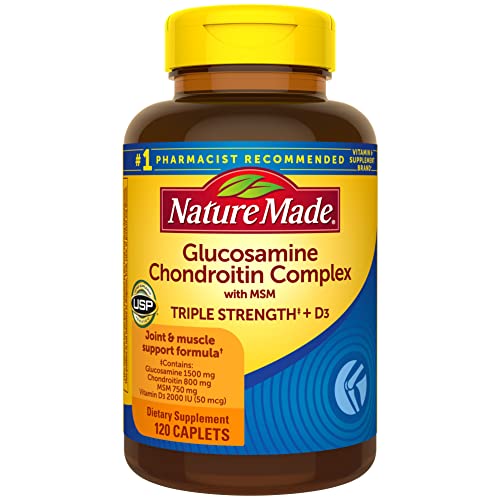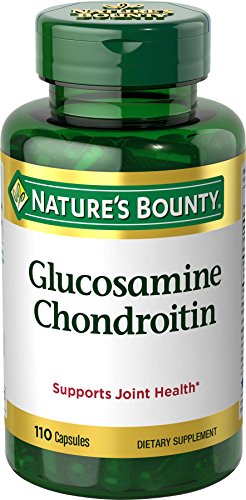Chondroitin and Glucosamine for Knee OA Relief
Quick Summary: This 2015 clinical trial tested if glucosamine and chondroitin supplements could slow knee joint damage and ease pain in people with knee osteoarthritis. The combo of both supplements slowed joint space loss by a small but significant amount over 2 years, but neither worked better than a placebo for pain relief. Side effects were rare and mild.
What the Research Found
Researchers looked at how these popular joint supplements affect knee osteoarthritis (OA), a condition where knee joints wear down over time, causing pain and stiffness. They measured joint space narrowing (JSN)—a sign of cartilage breakdown—using X-rays, and tracked pain levels with self-reports.
Key results:
- Combo power: Taking both glucosamine (1500 mg/day) and chondroitin (800 mg/day) reduced JSN by 0.10 mm over 2 years compared to placebo (a fake pill). This was statistically significant (p=0.046), meaning it's unlikely due to chance, after adjusting for factors like age, weight, and disease severity.
- Solo supplements fell short: Glucosamine alone or chondroitin alone didn't significantly slow JSN (p=0.11 and p=0.22).
- Pain didn't budge differently: Everyone's knee pain dropped by about 2-2.4 points on a 0-10 scale over the first year, but the supplements didn't outperform placebo (p=0.93). This suggests a strong "placebo effect," where feeling like you're getting treatment helps pain.
- Safety check: Only 6% of people (34 out of 605) had possible side effects linked to the supplements, like mild stomach issues—no serious problems.
In short, the combo might help preserve joint structure a bit, but it won't necessarily make your knees hurt less than doing nothing.
Study Details
This was a high-quality study: double-blind (neither participants nor researchers knew who got real supplements vs. placebo), randomized (people were assigned groups by chance), and placebo-controlled to ensure fair comparisons.
- Who was studied: 605 adults aged 45-75 with ongoing knee pain and early-to-moderate knee OA. They had narrowing in the inner knee joint but still over 2 mm of joint space left (meaning their OA wasn't too advanced).
- How long: 2 years total, with X-rays at start and end to check joint changes. Pain was tracked every 2 months for the first year using a daily diary.
- What they took: Once-daily capsules—glucosamine sulfate (1500 mg) alone, chondroitin sulfate (800 mg) alone, both together, or matching placebo. No special diet or exercise rules.
What This Means for You
If you have knee OA and are searching for "chondroitin benefits for knees" or "glucosamine for joint pain," this trial offers real talk. The combo might slightly slow your joint wear—think of it as a minor brake on cartilage loss—which could delay worsening symptoms long-term. But don't expect quick pain relief; the placebo group improved just as much, so mindset and other habits (like weight loss or low-impact exercise) might play a bigger role.
- Try it if: You're in early OA stages and want to protect your joints. Talk to your doctor about starting the combo at these doses—it's over-the-counter and low-risk.
- Skip solo doses: Chondroitin or glucosamine alone didn't help structure here, so pair them for potential benefits.
- Pair with lifestyle: Supplements aren't magic; combine with physical therapy, anti-inflammatory foods, or meds for better results.
- When to see a doc: If pain persists, get personalized advice— this study doesn't cover severe OA or long-term use.
Bottom line: Modest hope for joint health, but manage expectations for pain.
Study Limitations
No study is perfect, and this one has caveats to consider before buying supplements.
- Small structural win: The 0.10 mm slowdown sounds precise but is tiny— it might not feel meaningful in daily life or prevent surgery down the road.
- Pain tracking stopped early: They only checked pain for 1 year, so we don't know if benefits (or placebo effects) lasted the full 2 years.
- Placebo power: The fake pill worked well for pain, which is common in OA studies and might hide true supplement effects.
- Not for everyone: Focused on milder cases (joint space >2 mm); results may not apply to advanced OA or younger/older folks. No deep dive into subgroups like high-BMI people.
- More research needed: This doesn't test higher doses, long-term safety, or combos with other treatments.
For the full study, check ClinicalTrials.gov NCT00513422 or PubMed 24395557. Always consult a healthcare pro before starting supplements.
Technical Analysis Details
Key Findings
The 2015 clinical trial found that the combination of glucosamine sulfate (1500 mg/day) and chondroitin sulfate (800 mg/day) significantly reduced 2-year joint space narrowing (JSN) in knee osteoarthritis patients by 0.10 mm (95% CI: 0.002–0.20 mm; p=0.046) compared to placebo. However, neither supplement alone showed structural benefits. All groups (including placebo) reported reduced knee pain over 1 year, but no significant differences between groups (p=0.93). Adverse events were minimal (6% of participants).
Study Design
- Type: Double-blind, randomized, placebo-controlled clinical trial.
- Sample Size: 605 adults aged 45–75 years with symptomatic knee osteoarthritis and medial tibiofemoral joint space narrowing (>2 mm baseline width).
- Duration: 2-year follow-up (structural outcomes) with pain assessed over 1 year.
- Groups: Glucosamine, chondroitin, combination, or placebo.
- Outcomes: Radiographic JSN (primary structural measure) and self-reported maximum knee pain (0–10 scale).
Dosage & Administration
- Glucosamine: 1500 mg/day as sulfate salt in a single oral capsule.
- Chondroitin: 800 mg/day as sulfate salt in a single oral capsule.
- Combination: Both supplements in separate capsules.
- Placebo: Matching capsules with inert ingredients.
- Administration: Once daily, with no dietary or lifestyle controls specified.
Results & Efficacy
- Structural Efficacy:
- Combination group: 0.10 mm less JSN vs. placebo (p=0.046; 95% CI: 0.002–0.20 mm).
- Single agents: No significant JSN reduction (glucosamine p=0.11; chondroitin p=0.22).
- Pain Relief:
- All groups showed reduced pain scores over 1 year (mean decrease: 2.0–2.4 on 0–10 scale).
- No between-group differences in pain reduction (p=0.93).
- Safety: 34 adverse events (6%) possibly related to treatment, with no major safety concerns.
Limitations
- Modest Structural Effect: The 0.10 mm JSN reduction in the combination group, while statistically significant, may lack clinical relevance given the small magnitude.
- Pain Assessment Duration: Pain outcomes were only tracked for 1 year, potentially missing longer-term symptomatic effects.
- Placebo Response: High placebo effect in pain reduction (similar to active groups) may obscure true symptomatic benefits.
- Population Specificity: Participants had mild-to-moderate OA (retained >2 mm joint space), limiting generalizability to advanced cases.
- No Subgroup Analysis: Effects on specific demographics (e.g., BMI categories) were not detailed.
Clinical Relevance
For individuals with early knee osteoarthritis, this study suggests the glucosamine-chondroitin combination may modestly slow structural progression (joint space loss) over 2 years. However, the lack of symptomatic benefit (pain reduction vs. placebo) and small effect size imply limited practical value for pain management. The safety profile supports short-term use, but long-term risks remain unstudied. Clinicians might consider combination therapy for structural preservation in select patients, but not as a primary pain relief strategy. Further research is needed to confirm efficacy in advanced OA or with higher dosages.
Source: NCT00513422 | PubMed Link: 24395557
Original Study Reference
Glucosamine and chondroitin for knee osteoarthritis: a double-blind randomised placebo-controlled clinical trial evaluating single and combination regimens.
Source: PubMed
Published: 2015
📄 Read Full Study (PMID: 24395557)




